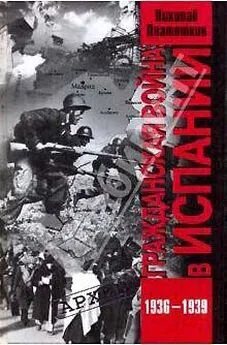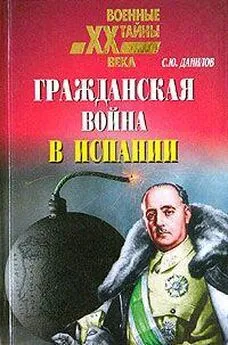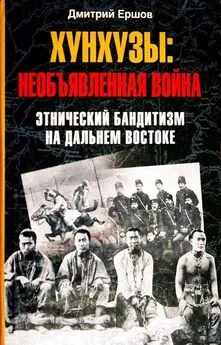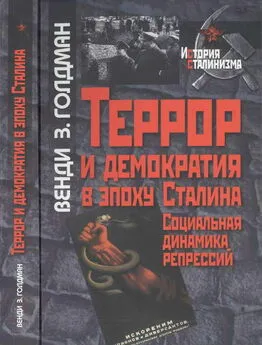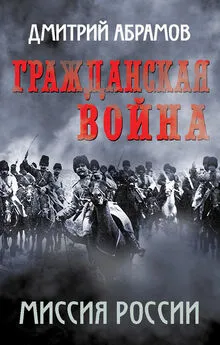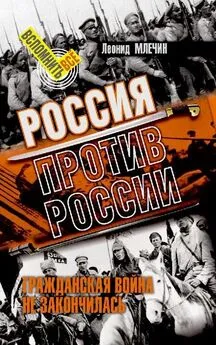Раддай Райхлин - Гражданская война, террор и бандитизм (Систематизация социологии и социальная динамика)
- Название:Гражданская война, террор и бандитизм (Систематизация социологии и социальная динамика)
- Автор:
- Жанр:
- Издательство:неизвестно
- Год:неизвестен
- ISBN:нет данных
- Рейтинг:
- Избранное:Добавить в избранное
-
Отзывы:
-
Ваша оценка:
Раддай Райхлин - Гражданская война, террор и бандитизм (Систематизация социологии и социальная динамика) краткое содержание
Гражданская война, террор и бандитизм (Систематизация социологии и социальная динамика) - читать онлайн бесплатно полную версию (весь текст целиком)
Интервал:
Закладка:
Я уже отмечал, что вождь это центр тяжести общества. Пользуясь такой аналогией, можно утверждать, что характер вождя - это вектор скорости общества. Именно по психологии вождя, по его идеологии можно предсказать куда он поведет и сколь решительно. Идеологические взгляды, правый он или левый, позволяют предсказать в какую сторону вождь будет вести общество. Говоря о направлении, я имею ввиду движение вдоль оси сплоченности: либо классическое движение в сторону Анархии, или наоборот. Из этого очевидно, почему данные о вожде вплоть до его слабостей, хобби и интимных подробностей жизни тщательно собираются всеми разведывательными службами.
Половина моей работы посвящена психологии и поведению личности и особенно той, которая квалифицирована мной как голем. Также показано, что именно голем стремится пробиться к вершине иерархии и по этой причине занимается политикой. Проделанная мной работа помогает описать поведение личности и в частности вождя, однако не столь подробно, как этого хотелось бы.
Вернемся к нашему примеру, к России. В течение десятилетия во главе ее стоит президент Борис Ельцин. Оценим его как вождя и как личность. Одновременно проследим историю России. Вот биография вождя заимствованная мной из энциклопедии Британника. (Фамилия нашего героя в одной статье пишется через ts а в другой через st. Так в оригинале. Я приношу извинения читателю.)
Yeltsin, Boris, in full BORIS NIKOLAYEVICH YELTSIN (b. Feb. 1,
1931, Sverdlovsk [now Yekaterinburg], Russia, U.S.S.R.), Russian
politician who was mayor of Moscow from 1985 to 1987 and president
of Russia from 1990. In 1991 he became the first popularly elected
leader in Russian history.Yeltsin attended the Urals Polytechnic
Institute and worked at various construction projects in the
Sverdlovsk oblast from 1955 to 1968, joining the Communist Party
in 1961. In 1968 he began full-time work in the party, and in 1976
he became first secretary of the Sverdlovsk oblast party
committee. Thereafter he came to know Mikhail Gorbachev, then his
counterpart in the city of Stavropol; and, after coming to power,
Gorbachev chose him in 1985 to clean out the corruption in the
Moscow party organization and elevated him (as a nonvoting member)
to the Politburo in 1986. As the mayor of Moscow (i.e., first
secretary of Moscow's Communist Party committee), Yeltsin proved
an able and determined reformer, but an estrangement between
himself and Gorbachev set in when Yeltsin began criticizing the
slow pace of reform at party meetings, challenging party
conservatives and even criticizing Gorbachev himself. Yeltsin was
forced to resign in disgrace from the Moscow party leadership in
1987 and from the Politburo in 1988.
Yeltsin was demoted to a deputy minister for construction but then
staged the most remarkable comeback in Soviet history. His
reputation as an advocate of democracy and economic reform had
survived his fall, and he now became the people's champion in
Moscow, winning a multicandidate election to the U.S.S.R. Congress
of People's Deputies (i.e., the new Soviet parliament) in March
1989 by a landslide. A year later, on May 29, 1990, the parliament
of the Russian S.F.S.R. elected him president of the Russian
republic against Gorbachev's wishes. In his new role, Yeltsin
publicly supported the right of Soviet republics to greater
autonomy within the Soviet Union, took steps to give the Russian
republic more autonomy, and declared himself in favour of a
market-oriented economy and a multiparty political system.
In July 1990 Yeltsin quit the Communist Party. His victory in the
first direct, popular elections for the presidency of the Russian
republic (June 1991) was seen as a mandate for economic reform.
During the brief coup against Gorbachev by hard-line Communists in
August 1991, Yeltsin defied the coup leaders and rallied
resistance in Moscow while calling for the return of Gorbachev.
When the coup crumbled a few days after it had begun, Yeltsin
emerged as the country's most powerful political figure. In
December 1991 he and the presidents of Ukraine and Belarus
(Belorussia) established a new Commonwealth of Independent States
that would replace the foundering U.S.S.R. When the Soviet Union
collapsed after Gorbachev's resignation as Soviet president on
December 25, the Russian government under Yeltsin's leadership
then assumed many of the former superpower's responsibilities for
defense, foreign affairs, and finance.
As president of an independent Russia, Yeltsin set about the
formidable task of transforming his country's decaying command
economy into one based on free markets and private enterprise.
Early in 1992 he ended government price subsidies and controls
over food and other consumer goods, while also allowing the
unhindered growth of free markets in the cities. In
September-October 1993 Yeltsin's leadership was severely tested
when hard-line legislators staged a coup after Yeltsin had
dissolved parliament. Although the coup was suppressed, Yeltsin's
supporters fared poorly in elections held in December.
EUROPE ADRIFT AFTER THE COLD WAR: Relations with Russia.
20th-Century International Relations Relations with Russia.
Even the prospect of a unified Europe could not ensure peace and
prosperity unless two other issues were addressed: the future of
NATO and the relationship among the EU, the United States, and the
struggling democracies of eastern Europe, above all Russia.
Western relations with the new Russia began auspiciously. In early
1992 Yeltsin toured western Europe and signed friendship treaties
with Britain and France in exchange for aid and credits. On Jan.
3, 1993, Bush and Yeltsin signed the START II pact, promising to
slash their long-range nuclear arsenals by two-thirds within a
decade. After a personal appeal from former President Richard
Nixon, the Bush administration also approved an economic
assistance package for Russia, and Congress voted funds to help
Russia dismantle its nuclear weapons. On April 4, 1993, at a
summit meeting with Yeltsin at Vancouver, Clinton pledged an
additional $1,600,000,000 in aid. It remained unclear, however,
how much the Western powers could influence Russia's future. Did
outside assistance hasten Russia's progress toward capitalism, or
just help it to subsidize old, inefficient industries? Should
Western leaders urge "shock therapy" to propel Russia quickly into
capitalist modes even at the risk of high unemployment, or should
they advise Yeltsin to reform slowly? Should NATO stand firm
against signs of Russian assertion in foreign policy, or might
accommodationist policies boost Yeltsin's popularity at home?
Such questions became paramount after September 1993 when a
coalition of Yeltsin's opponents in the Russian Congress of
People's Deputies challenged his reforms and emergency powers and
called for the President's ouster. On September 21 Yeltsin
dissolved the parliament, and the latter promptly impeached him in
favour of deposed Vice President Aleksandr Rutskoy. Violence soon
erupted between security forces and mobs of Communist and
nationalist sympathizers marching in support of the insurgent
deputies. On October 4, Yeltsin ordered army units to attack the
parliament with heavy weapons, resulting in an estimated 142
deaths. He clearly was acting in "undemocratic" fashion, but he
did so to suppress opponents of democracy who had been elected
under the Communist constitution. When fully free elections were
held in December 1993, however, ex-Communists and extreme
nationalists led by Vladimir Zhirinovsky won stunning victories.
Clinton's expert on Russian affairs, Strobe Talbott, immediately
called for "less shock, more therapy" in Russian economic policy,
and Yelstin proceeded to dismiss his more liberal ministers. He
also took a harder line in foreign policy in hopes of deflecting
the criticism that he was too eager to please his Western
benefactors.
This ominous turn of events called into question the fundamental
assumption of Russian partnership that underpinned Clinton's
foreign policy.
Copyright (c) 1996 Encyclopaedia Britannica, Inc. All Rights
Reserved
Анализируя карьеру Ельцина, можно утверждать, что вначале это была типичная карьера советского гражданина построенная не на знаниях и умственных способностях, а на умении приспосабливаться. Таким же как Б.Ельцин был Л.Брежнев. Извлеченный из провинции в Москву Н.Хрущевым, Л.Брежнев поторопился спихнуть и занять его место при первой возможности. Б.Ельцин был извлечен из провинции Б.Горбачевым и спихнул последнего при первой же возможности. Чтобы выдернуть трон из-под М.Горбачева, во имя личных интересов он разваливает крепко сколоченную огромную империю и оставляет миллионы русских брошенными в бывших колониях. Поведение Б.Ельцина хорошо описывается "Железным законом олигархии" Роберта Михельса и тем, что я пишу в четвертой главе своей книги о стереотипной психологии голема. Пока Б.Ельцин был внизу он был сторонник свободы и демократии, но как только он выбрался наверх, он крепко вцепился в свое место и силой разгоняте Государственную Думу. Не обладая никакими знаниями в области экономики и социологии, он правит страной посредством своих инстинктов. В этом отношении он ничем не отличается от И.Сталина. Разница лишь в направлении. И.Сталин сплачивал народ и для этого он ликвидировал НЭП, создавал колхозы и Архипелаг ГУЛаг. Марксистская идеология отвечала потребностям И.Сталина и была им положена в основу. Б.Елцин разваливает все что только можно. Сравнительно за короткий срок он развалил империю, развалил страну, развалил марксистскую идеологию, развалил армию, развалил социалистическую экономику... При Б.Ельцине началась гражданская война на Северном Кавказе. Сначала это была Чечня, которая отделилась от России. Процесс развала не окончен. Кто еще отделится?
Читать дальшеИнтервал:
Закладка:

